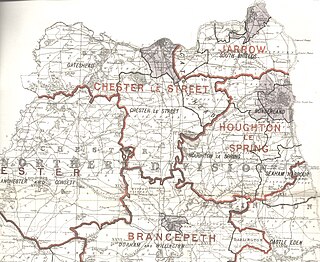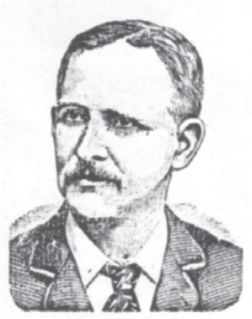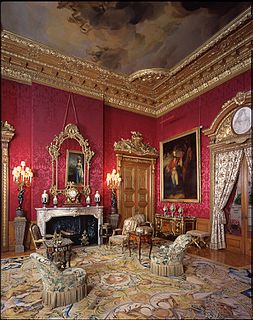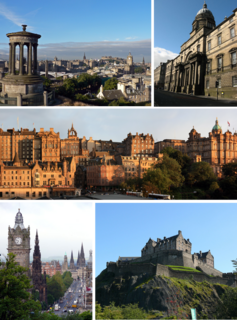Wednesbury was a borough constituency in England's Black Country which returned one Member of Parliament to the House of Commons of the Parliament of the United Kingdom from 1868 until it was abolished for the February 1974 general election.

John Albert Bright was an English industrialist and Liberal Unionist and Liberal politician.
The South Shields by-election, 1916 was a parliamentary by-election held for the House of Commons constituency of South Shields on 18 March 1916.

Robert J. Cox FRSE was a Scottish gelatine and glue manufacturer and Liberal Unionist politician.
The Spalding by-election, 1917 was a parliamentary by-election held for the House of Commons constituency of Spalding in Lincolnshire on 25 October 1917.
The Carmarthen District by-election, 1912 was a Parliamentary by-election held in the United Kingdom on 29 January 1912 for the Carmarthen District in Wales. The constituency of Carmarthen District of Boroughs, was centred on the boroughs of Carmarthen and Llanelli. It returned one Member of Parliament to the House of Commons of the Parliament of the United Kingdom, elected by the first past the post voting system.
The Manchester South by-election was a Parliamentary by-election. It returned one Member of Parliament to the House of Commons of the Parliament of the United Kingdom, elected by the first past the post voting system.

The North West Durham by-election was a Parliamentary by-election held on 30 January 1914. It returned one Member of Parliament to the House of Commons of the United Kingdom, elected by the first past the post voting system.
The Rotherham by-election, 1899 was a parliamentary by-election held on 23 February 1899 for the House of Commons constituency of Rotherham in the West Riding of Yorkshire.
The Rye by-election, 1903 was a by-election held in England on 17 March 1903 for the House of Commons constituency of the Rye or Eastern Division of Sussex.

The Walthamstow by-election, 1897 was a parliamentary by-election held in England on 3 February 1897 for the House of Commons constituency of Walthamstow. The area was then a division of Essex, and is now part of Greater London.
The Aylesbury by-election, 1885 was a by-election held on Thursday 16 July 1885 for the British House of Commons constituency of Aylesbury in Buckinghamshire.
The Edinburgh South by-election, 1910 was a parliamentary by-election held for the House of Commons constituency of Edinburgh South in Scotland on 29 April 1910.
The Edinburgh South by-election, 1899 was a parliamentary by-election held for the House of Commons constituency of Edinburgh South in Scotland on 19 June 1899.
The Birmingham North by-election, 1899 was a parliamentary by-election held for the House of Commons constituency of Birmingham North on 14 February 1899.
The West Derbyshire by-election, 1891 was a parliamentary by-election held for the House of Commons constituency of West Derbyshire on 2 June 1891.
The West Derbyshire by-election, 1900 was a parliamentary by-election held for the House of Commons of the United Kingdom constituency of West Derbyshire on 11 December 1900.
The Woodbridge by-election of 1920 was held on 28 July 1920. The by-election was held due to the resignation of the incumbent Coalition Unionist MP, Robert Francis Peel. It was won by the Coalition Unionist candidate Sir Arthur Churchman.

Orkney and Shetland is a constituency of the House of Commons of the Parliament of the United Kingdom. It elects one Member of Parliament (MP) by the first past the post system of election. In the Scottish Parliament, Orkney and Shetland are separate constituencies.

The Mile End by-election was a Parliamentary by-election for the seat of Mile End, Tower Hamlets, in the east end of London. It returned one Member of Parliament to the House of Commons of the United Kingdom, elected by the first past the post voting system.













